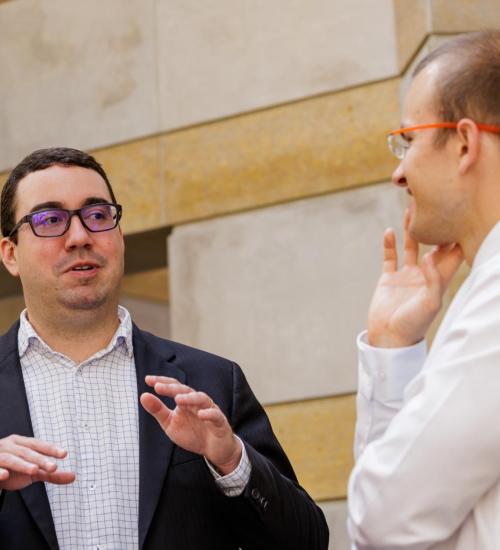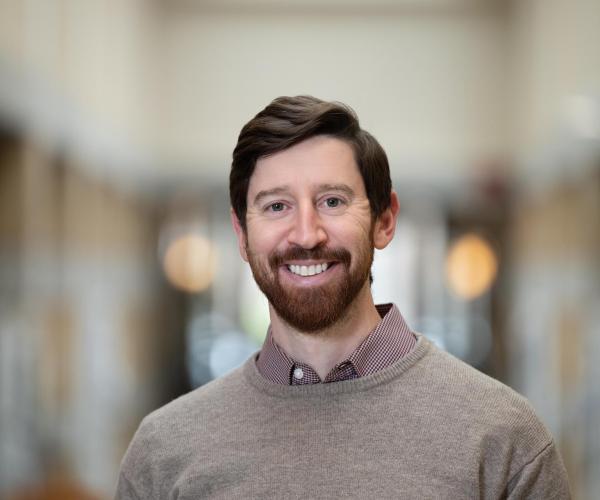
Postdoctoral Visiting Fellowships
The Kellogg Institute Postdoctoral Visiting Fellowships are awarded to newly minted PhDs who conduct research on global democracy. As members of the Institute’s vibrant Visiting Fellows cohort, Postdoctoral Fellows benefit from dedicated time and resources to advance their own research agendas, engage in scholarly development, and collaborate with distinguished faculty, scholars, and practitioners from the US and abroad.
Postdoctoral Visiting Fellowships include:
- A competitive stipend
- Round trip travel expenses
- Research funding
- Medical insurance benefits
- Academic year-long fellowships, up to 2-years available depending on interest and performance
Who is Eligible?
We invite applications from scholars conducting international research on themes related to global democracy. Applicants may come from any country and must have earned a PhD no more than three years prior to the start of the fellowship. (Please note: graduates of the University of Notre Dame PhD programs are not eligible to apply.)
The most competitive applicants will hold a PhD or equivalent degree in a social science discipline. In exceptional cases, the Institute will consider applicants with a PhD in other disciplines.
Eligibility Considerations (for non-US citizens/residents)
For non-US citizens/residents please consider:
- Advanced English language proficiency is required.
-
Foreign nationals must have a valid passport and obtain a J-1 Visa.
Other Considerations
According to US immigration regulations, an individual who completes a period of stay of less than five years as a J-1 professor or research scholar and does not have another appointment immediately following the completion of said stay, cannot return to the US in the J-1 Professor or J-1 Research Scholar category until the individual has been outside the US for a minimum period of 24-months. This 24-month bar is different from the two-year home residency requirement some scholars are subject to.
For program information, please contact Lupe Ramírez at gramirez@nd.edu
Expectations
Residency
Fellows are expected to be in residence during their tenure at Kellogg. Absences of more than a few days are discouraged and require the Director’s permission.
Presentation
Fellows are expected to give at least one presentation of their current research.
Participation
Our visitors are an important part of the scholarly community at the Institute. We expect fellows to attend and participate in the weekly seminar and lecture series and most Kellogg events.
Publication
We expect fellows to publish the results of research undertaken and/or completed during their stay. We ask that such publications contain an acknowledgment of Kellogg Institute support.
Application Process
Kellogg Institute fellowship applications are submitted through our online system in Interfolio.
- Cover letter addressing your interest in the fellowship and specifying your preferred term of stay
- Curriculum vitae
- A research project statement (6–10 double-spaced pages)
- Project Abstract (150 words max)
- Short Bio (200-300 words)
-
Three Confidential Letters of Recommendation - Letters must be received into the Interfolio system no later than October 7
Competition for A/Y 2026 -27 - Applications open August 1, 2025 - October 1, 2025
Fellowship Duration
Postdoctoral fellowships are awarded for an entire academic year (August to May.) Two-year postdoctoral fellowships may be offered upon demonstrated interest and performance by the applicant and are subject to renewal with the Kellogg Institute during the first year.
Annual Visiting Fellow Competition
The application for the 2026-27 academic year opens on August 1, 2025 with the deadline of October 1, 2025.
How Are Fellows Selected?
Fellowships are awarded on a competitive basis. A committee composed of Kellogg Institute Faculty Fellows evaluates the applications based on the following selection criteria:
- The individual's scholarly record and potential
- The problem being addressed and the interest and importance within and beyond the researcher’s field
- The study's relationship to the global democracy research theme of the Kellogg Institute
- The quality of the research design, including basic hypotheses, research methodology, and the kinds of data or evidence the researcher is considering
- The importance and originality of this project and its clarity to someone outside the applicant’s discipline
- The quantity and quality of work the researcher would be able to complete during his/her time at the Institute
Frequently Asked Questions
The Institute offers visiting fellows the possibility of leasing a furnished on-campus apartment, subject to availability, for the duration of their first year appointment only. If a second year is approved, the fellows must find off-campus housing for the second year.
As full-time salaried employees, Visiting Fellows have coverage through Anthem Blue Cross/Blue Shield and other providers for medical, dental, and vision insurance; and access to an onsite medical facility and pharmacy.
The stipend is $80,000/year.
One-year postdocs are paid over 12 months; if a second year is approved, the second-year stipend is paid over the additional 9 months.
Yes, $5,000/year is available in research funds









